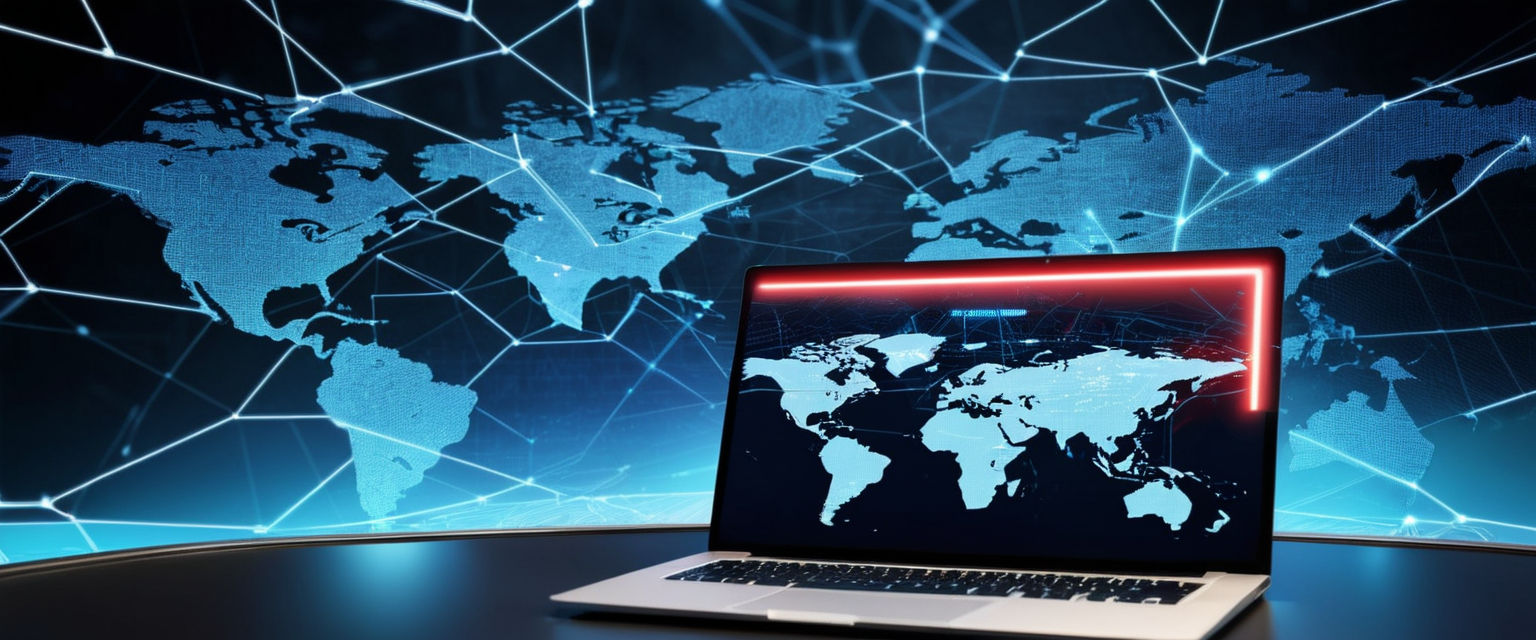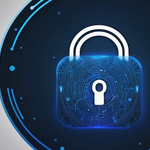
Key Findings: Virtual Private Networks have become essential tools in protecting online privacy and security, with over 32 percent of Americans now using VPNs as part of their digital safety toolkit. The reasons for adopting VPN technology span from safeguarding sensitive data during remote work to accessing content unrestricted by geographic limitations, while simultaneously protecting users from increasingly sophisticated cyber threats and ISP surveillance. However, the landscape is evolving, with organizations gradually transitioning toward more comprehensive security frameworks like zero-trust architectures to address VPN vulnerabilities and meet modern security demands.
Understanding VPNs and Their Fundamental Architecture
A Virtual Private Network represents a technological solution designed to address the fundamental challenge of protecting digital communications in an increasingly connected world. At its core, a VPN establishes a secure digital connection between a user’s device and a remote server operated by a VPN provider, creating an encrypted tunnel through which all internet traffic flows. This architecture fundamentally transforms how data travels across the internet by intercepting communications that would normally be exposed to various intermediaries and securing them within an impenetrable layer of encryption.
The conceptual framework of VPNs emerges from a historically practical necessity. VPN technology was initially developed by Microsoft in 1996 with the specific purpose of enabling remote workers to access corporate networks securely from locations outside the office. This original use case proved so valuable that the technology evolved significantly over subsequent decades to address broader security and privacy concerns in an increasingly digital society. Today’s VPN implementations serve purposes far beyond corporate access, extending to individual privacy protection, content access, cybersecurity defense, and freedom of expression in restrictive environments.
The technical operation of a VPN involves several interconnected components working in concert. When you connect to a VPN server, your internet traffic is encrypted in real time, ensuring that it remains secure as it travels through the internet. One of the key features distinguishing VPNs from other network solutions is their ability to hide your IP address. By redirecting your IP address through a remote server, a VPN hides your actual location from outside observers, making it impossible for Internet Service Providers and third parties to track the websites you visit or the data you exchange.
The encryption protocols employed by VPNs represent sophisticated cryptographic implementations designed to render data unreadable to unauthorized parties. VPNs use three primary types of cryptography to accomplish this protection: symmetric encryption, asymmetric encryption, and hashing. When you connect to a VPN server, the connection performs a handshake between your VPN client and the server, during which hashing authenticates that you are interacting with a legitimate VPN server, while asymmetric encryption exchanges symmetric encryption keys. Once this handshake is successful, symmetric encryption encrypts all data passing between you and the VPN server, with the most common cipher being AES (specifically AES-256). This multilayered approach to encryption represents the same security standards used by financial institutions and government agencies to protect classified information.
Privacy Protection and Data Security in an Age of Ubiquitous Surveillance
The primary and most compelling reason individuals should consider adopting VPN technology relates to the fundamental erosion of online privacy in contemporary society. The digital landscape presents unprecedented challenges to personal privacy, as countless entities work to collect, analyze, and monetize personal data. According to cybersecurity statistics, there are over 2,200 cyberattacks occurring daily, representing one attack every 39 seconds, with 95 percent of digital breaches arising from preventable human error. In this environment, sensitive data like work emails, payment information, and location tagging is constantly being transmitted online, making information trackable and easy to exploit, particularly on public networks where anyone with access to the network has potential access to personal data.
A VPN establishes a protective shield against malicious hackers by anonymizing online traffic and protecting location information. The encryption capabilities of a VPN ensure that all internet traffic remains secure, preventing anyone, including Internet Service Providers, from monitoring online activities. This privacy protection addresses one of the most significant concerns facing internet users today. Internet Service Providers can log and track browsing history through a device’s unique IP address, information that could potentially be sold to third-party advertisers, given to the government, or left vulnerable in the face of a security compromise. By routing connections to a remote VPN server instead of directly through an ISP’s servers, a VPN masks the IP address, prevents ISP tracking, and keeps personal data private.
The scope of data collection by corporations and advertisers extends far beyond what most users realize. Websites and applications constantly track and analyze online activity, with sophisticated profiling techniques used to build detailed pictures of user behavior. A VPN can prevent web browsers and others from accessing your connection, helping keep the information you send and receive anonymous and secure. This protection proves particularly valuable for individuals concerned about corporate surveillance and behavioral tracking. The process of masking your IP address makes it difficult for websites and third parties to link your online activities to your real identity, significantly enhancing privacy. Even more importantly, VPNs protect users from tracking techniques employed by cookies, which are small text files that websites use to track browsing habits. Although VPNs cannot block cookies entirely, they can limit the amount of information websites gather by obscuring your real IP address, making it harder for trackers to build a comprehensive profile of your online activities.
For individuals residing in jurisdictions with government surveillance capabilities, VPNs provide essential protection against state-sponsored monitoring. In environments where personal safety is jeopardized by online activities, whether journalists reporting on sensitive issues, activists organizing for social change, or members of marginalized communities seeking information and support, VPN encryption provides a vital safeguard. The United Nations Special Rapporteur on the promotion and protection of freedom of opinion and expression has explicitly recognized that encryption and anonymity provide individuals and groups with a zone of privacy online to hold opinions and exercise freedom of expression without arbitrary and unlawful interference. In Russia’s environment of censorship and state-sponsored restrictions, for example, online anonymity through tools like VPNs can serve as a lifeline for vulnerable populations seeking access to accurate information and community support.
Securing Connections on Public Wi-Fi Networks
One of the most immediate and practical reasons to utilize VPN technology relates to the security vulnerabilities inherent in public Wi-Fi networks. Public Wi-Fi networks, commonly found in airports, cafes, hotels, and other commercial establishments, represent significant security risks despite their convenient accessibility. Many public Wi-Fi hotspots operate as unencrypted networks that transmit data in plain text, making communications vulnerable to cybercriminals equipped with the right tools. Hackers operating on the same network can intercept online activities, including banking information, login credentials, and personal messages.
The threat landscape extends beyond simple passive observation. Malicious actors actively exploit public Wi-Fi vulnerabilities through various attack vectors. Rogue access points, also called “evil twin” networks, represent particularly deceptive threats where cybercriminals create networks mimicking legitimate Wi-Fi names to trick users into connecting. For example, a traveler attempting to connect to legitimate hotel Wi-Fi might inadvertently select a fraudulent network set up by attackers to capture their internet traffic. Man-in-the-middle attacks represent another significant threat, where intruders secretly position themselves between two communicating parties, intercepting, eavesdropping on, or manipulating communications. On unsecured public Wi-Fi networks, attackers can capture data packets more easily, potentially gaining full access to sensitive information like login credentials, credit card numbers, or personal messages.
The distribution of malware through public Wi-Fi presents additional serious dangers. When users connect to public Wi-Fi, they may open themselves up to malware attacks by bad actors lurking on the network. Once a connection has been established, attackers can exploit vulnerabilities in device software to install malicious programs without the user’s knowledge, including spyware that steals personal information or ransomware that holds systems hostage. Packet sniffing, also known as Wi-Fi snooping, involves cybercriminals using special software kits and devices to eavesdrop on Wi-Fi signals, allowing them to see online activity including whole web pages visited and sensitive documents and photos sent and received.
A VPN directly addresses these public Wi-Fi vulnerabilities through comprehensive encryption and security measures. One of the best ways to minimize public Wi-Fi security risks is to use a VPN, which establishes a private, encrypted tunnel through which data is sent and received. With a VPN connection, the traffic between your device and the VPN server gets scrambled into code, making it unreadable to anyone attempting to intercept it. This encryption proves particularly valuable when accessing sensitive services like banking applications while connected to public networks. Banking online through a VPN ensures that traffic to and from your bank, whether using an app or web portal, remains encrypted, so no one can gain a glimpse of account information or login credentials. This protection extends across all online activities, from email communications to financial transactions to sensitive document sharing.
Enabling Remote Work and Business Productivity
The explosive growth in remote work arrangements has created new imperatives for secure network access, making VPN technology increasingly vital for organizational security and employee productivity. Remote work has become more widespread than ever before, with many organizations now supporting hybrid and fully distributed workforces. In this new working paradigm, employees need to access company resources over private connections from anywhere they have internet connectivity, providing employees with greater flexibility while ensuring that company data remains protected and secure, even on public Wi-Fi networks.
The security challenges posed by remote work are substantial and multifaceted. Employees working from home often connect to networks that lack the security features built into corporate networks maintained by professional IT security teams. If a hacker gains access to a home network, they can potentially see all information traveling to and from every connected device, including communications, passwords, downloads, and more. Similarly, employees working from public spaces like coffee shops or airports expose company data to the same vulnerabilities that affect any public Wi-Fi user. A VPN can protect home internet connections and prevent exposure to cyberattacks by encrypting all traffic flowing to and from any device running the VPN. This encryption means that anyone intercepting that traffic will be unable to read it without the decryption key.
The business case for VPN deployment extends beyond security considerations to encompass operational efficiency and organizational resilience. A Virtual Private Network creates a secure access channel, protecting sensitive information from interception and preventing unauthorized access to devices or systems. By adding a VPN, a business can extend all its intranet’s resources to employees working from remote offices or their homes. This capability fundamentally transforms how organizations can structure their workforce. With VPN access, remote workers can securely access corporate servers, databases, applications, and file storage systems as if they were physically present in the office. Multiple devices can be connected simultaneously through a single VPN connection, granting access to an organization’s file server, printers, databases, and other networked resources, with each device and application able to contact the others.
For organizations, the advantages accumulate substantially when considering the broader business context. VPNs provide a cost-effective alternative to expensive private networks, allowing organizations to reduce costs while enabling seamless remote work. As organizations grow and expand their operations to new markets, VPNs facilitate the creation of secure, reliable connections across geographic boundaries, allowing businesses to expand their reach without establishing physical infrastructure in each new location. Organizations can establish a branch office with minimal physical presence, significantly reducing the time and resources typically required for such expansions. The agility offered by VPNs means businesses can move quickly to set up operations in new markets, deploying a VPN gateway box and connecting it to hub or spoke boxes in various locations in a fraction of the time traditionally required.

Accessing Geo-Restricted Content and Bypassing Geographic Limitations
Beyond security and privacy applications, VPN technology serves as a powerful tool for accessing content and services that may be geographically restricted or censored. Many online services restrict content access based on user geographic location, a practice implemented for various reasons but resulting in users lacking access to certain kinds of content. A VPN disguises or spoofs the location of a local server so that it appears to be based elsewhere, such as in another country. This capability transforms how users can interact with global digital content and services.
Protect Your Digital Life with Activate Security
Get 14 powerful security tools in one comprehensive suite. VPN, antivirus, password manager, dark web monitoring, and more.
Get Protected NowStreaming entertainment represents one of the most visible applications of geo-restriction bypass technology. Popular streaming services like Netflix, Hulu, Disney+, and Amazon Prime Video maintain different content libraries across different geographic regions due to licensing agreements and content distribution restrictions. By connecting to VPN servers in different countries, users can theoretically access content available in those regions. This functionality appeals particularly to travelers who wish to continue accessing their home country’s entertainment services while abroad, or to individuals seeking access to content libraries unavailable in their region. The practical example of using an NordVPN server in the United States to access Pandora while traveling in Thailand demonstrates how location spoofing enables access to services otherwise restricted by location.
The implications extend far beyond entertainment access to encompass access to critical information and services. A VPN allows users to change their virtual location, which is an effective way to bypass geographical restrictions and online censorship. This capability proves particularly important for individuals residing in countries with restricted internet access. Some regions restrict access to certain sites and services due to government restrictions, censorship, or surveillance, and location spoofing gives users the ability to circumvent firewalls, view blocked websites, and move freely online.
The stakes become significantly higher when considering information access in restrictive environments. In nations with stringent internet regulations, governments frequently clamp down on access to websites and social media platforms they perceive as threats to their authority. This stifles the efforts of journalists and activists to disseminate their work and connect with their audience. In countries like China, Russia, Iran, and other surveillance-heavy regimes, VPNs enable citizens to bypass government censorship to access international news outlets, social media platforms, communication apps, and other resources restricted or banned within their borders. This access to unrestricted information proves essential for informed citizenship and democratic participation in environments where state control over information is comprehensive.
The economic dimension of geo-restriction extends to commercial transactions and consumer activities. Websites like hotels and airlines track customer network information to increase prices, implementing region-based pricing discrimination where different prices are charged for services based on customer location. Using a VPN to hide location allows consumers to see offers unaffected by shady pricing tactics, potentially saving substantial amounts on flights and accommodations. The money saved on flights alone could exceed the annual cost of VPN service. Additionally, eCommerce vendors sometimes charge different prices for services based on region, and VPN use can help consumers access more favorable pricing across different markets.
Financial Security and Cost-Effectiveness Considerations
The adoption of VPN technology presents compelling financial arguments that extend beyond the subscription cost itself. For organizations, VPNs offer substantial cost advantages compared to alternative security solutions. Businesses can avoid steep licensing fees or monthly charges associated with new security solutions by using a VPN, which prevents the need for extensive security measures by essentially making users invisible online. Since outside parties cannot attempt to get into networks when they think the system is located elsewhere, organizations do not need to deploy as many expensive security infrastructure components in every location.
For businesses managing distributed infrastructure, VPNs provide scalability advantages that directly impact operational costs. As organizations grow, so do the costs of building dedicated private networks. However, Internet-based VPNs can allow businesses to tap into network lines and capabilities, potentially giving remote and international locations better reach and service quality. With more reliable access regardless of where employees are located, businesses can scale more easily and at lower cost. Organizations can reduce the cost of maintaining servers because they can outsource support to third-party service providers in lower-cost areas.
For individual consumers, VPN pricing has become increasingly competitive and accessible. On average, VPNs cost around $10 per month, but they are significantly cheaper if subscribers sign up for longer-term contracts. Annual contracts cost approximately $8.41 per month when broken down monthly, while two-year contracts cost an average of $3.40 per month. The cheapest quality VPNs available cost as little as $1.99 to $2.99 per month for longer-term commitments. With many VPN services offering 30-day money-back guarantees, users can test whether a particular service meets their needs with minimal financial risk.
The financial argument extends to indirect cost savings through performance optimization. Some ISPs intentionally slow down, or throttle, internet speed if users employ excessive bandwidth, particularly when downloading files or streaming content. As businesses prioritize profitability, users consuming extra bandwidth become targets for intentional speed reduction. However, a VPN makes online activity invisible to ISPs, preventing them from seeing traffic patterns and bandwidth usage. Since ISPs cannot see when users are using more bandwidth than usual, they cannot determine when to throttle speeds. Users might experience an indirect speed boost to their connection as a result of avoiding ISP throttling.
Protection Against Evolving Cybersecurity Threats
The landscape of cybersecurity threats continues to evolve in sophistication and scope, making VPN protection increasingly valuable for defending against various attack vectors. VPNs protect users from hackers by hiding real IP addresses, making it challenging for hackers to target them, while also preventing various types of cyberattacks including DDoS attacks, man-in-the-middle attacks, malware infections, session hijacking, and phishing attempts. The technical mechanisms underlying this protection operate through multiple channels.
Data encryption represents the primary protective mechanism of VPN technology against hackers. VPNs encrypt user data, ensuring that even if hackers manage to intercept data, they cannot decipher it without the encryption key. This encryption makes it extremely difficult for hackers to steal personal information or infect devices with malware. When data is encrypted through VPN transmission between a device and a VPN server, it becomes scrambled and unreadable to anyone without the encryption key.
IP address masking provides another critical layer of protection against targeting attacks. VPNs hide real IP addresses and assign different IP addresses from their servers, making it difficult for hackers to determine user location or target specific devices. This protection proves particularly valuable against Distributed Denial of Service attacks, where attackers attempt to overwhelm targets with traffic. Hiding real IP addresses makes it difficult for hackers to launch DDoS attacks against devices or networks. For users engaged in activities that might attract attention from malicious actors, such as gaming or operating sensitive websites, this protection can prove invaluable.
Man-in-the-middle attacks represent a sophisticated threat where attackers position themselves between communicating parties to intercept or manipulate communications. VPNs can protect against these attacks through encryption that prevents attackers from reading intercepted data. Some VPN providers offer additional security features like ad blockers and malware protection that help prevent malware infections and phishing attempts, further enhancing protection against hackers.
However, it is important to recognize that VPNs do have limitations in their protective capabilities. While VPNs are useful privacy tools, they should be combined with other security practices like keeping software updated, using antivirus protection, and enabling two-factor authentication where possible. VPNs cannot prevent malware infections that occur through user actions independent of VPN protection, such as accidentally downloading malicious files or visiting malicious websites where users inadvertently trigger infections. VPN vulnerability to phishing attacks remains a significant limitation, as VPNs may block access to known malicious websites but cannot prevent users from falling victim to phishing attacks through fraudulent sites or emails. Additionally, VPN effectiveness depends on human behavior, as users must remember to enable and configure VPNs correctly. If users forget to activate their VPN or inadvertently disable it, they expose themselves to cyber threats.
Remote Access for Different Use Cases and User Populations
Beyond traditional office environments and residential remote work, VPN technology serves diverse populations with distinct requirements and use cases. Remote workers often connect to the internet through public or unsecured networks, which can expose sensitive information to potential cyber-attacks. VPNs ensure that approved machines are connected, with data encrypted and transmitted through a secure tunnel, making it difficult for malicious actors to intercept or tamper with information. This secure remote access proves crucial for maintaining the integrity and confidentiality of company resources, especially when employees work from various locations including coffee shops, airports, hotels, and other public spaces.
The expansion of remote access through VPNs has enabled unprecedented flexibility in how organizations structure work. Businesses can establish diverse operational models that span multiple physical locations, with employees accessing resources from anywhere with internet connectivity. Organizations can provide employees with a greater sense of flexibility through remote access, while also ensuring that company data remains protected and secure, even on public Wi-Fi networks. For freelancers and independent contractors, VPN access to client resources provides the security assurance clients demand while enabling remote collaboration across geographic boundaries.
For specific professional communities, VPN protection takes on heightened importance. Journalists and activists rely on VPNs as vital defense against censorship and surveillance. These individuals often operate in environments where personal safety is jeopardized by their work and seek to protect their identities, sources, and communications from detection and retaliation. By enveloping their internet connection in encryption and shrouding their IP address, journalists and activists can shield their identities and cloak their online pursuits. VPNs deliver a bulwark against cyberattacks increasingly employed to silence journalists and activists, including Distributed Denial of Service onslaughts and phishing attacks designed to pilfer sensitive information like login credentials.
In the financial services sector, VPN protection becomes critical for protecting sensitive transactions and data. VPNs have become indispensable to fintech security strategies, not only enabling users to access banking applications in places where geographic restrictions exist, but also obscuring their online footprint to add another layer of security. As financial technology companies manage sensitive customer data and oversee transactions worth billions each day, VPNs create private, protected channels for sensitive financial information to traverse the public internet. Without a VPN to hide IP addresses, websites and trackers can see online activity, posing considerable risks to financial institutions and their customers, as exposed IP addresses become entry points for targeted cyberattacks and unauthorized data breaches.

Emerging Security Challenges and VPN Limitations
While VPNs provide significant protective benefits, the cybersecurity landscape continues to evolve with new threats and vulnerabilities that highlight certain limitations of traditional VPN approaches. Organizations deploying VPNs face several pressing challenges that have become increasingly evident as IT environments grow more complex. VPNs struggle to provide secure remote access across modern hybrid and cloud environments due to their legacy architecture, which was built for simpler perimeter-based security models. Once a user connects to a VPN, they often have broad access to the network beyond what is necessary, going against the Principle of Least Privilege and increasing an organization’s attack surface.
Credential and device risk represents a critical vulnerability in traditional VPN implementations. If a user’s device becomes compromised or their login credentials are stolen, cybercriminals can use the VPN connection to move laterally within an organization’s network, increasing the damage of a data breach. This lateral movement capability means that compromising a single user account can potentially grant attackers access to extensive organizational resources.
The operational friction introduced by VPN deployments can negatively impact both security and productivity. VPNs can introduce latency and perform poorly, especially when supporting substantial remote workforces. Maintaining VPNs across a remote workforce proves more complex and resource-intensive than alternative solutions designed for modern IT environments. Additionally, most traditional VPNs lack monitoring or session recording, making it challenging for IT teams to enforce compliance, perform audits, or identify behavioral anomalies in real time.
A significant vulnerability emerges from improper VPN provider selection. Certain VPN providers track user activities, logging IP addresses, connection times, and websites visited. If a VPN provider stores this data, it can be hacked or seized by authorities, defeating the entire purpose of using a VPN for privacy protection. Some VPNs may keep information just for troubleshooting or optimization even while claiming to maintain a “no-logs” policy. This fundamental tension between privacy claims and actual data practices requires users to carefully research privacy policies before selecting a VPN provider.
Weak encryption represents another significant risk. Low-encryption VPNs are very easy to attack, and encryption that is outdated or poorly implemented can be broken by attackers, giving them access to user data. Weak encryption methods, such as using older protocols like PPTP or short encryption keys, can be effectively decrypted by persistent attackers. Organizations should avoid overtrust and select protocols with robust encryption mechanisms, like OpenVPN.
Selecting and Evaluating VPN Services
Making informed decisions about VPN selection requires understanding key features and security considerations that distinguish quality services from inadequate alternatives. When evaluating VPN services, organizations should choose reliable providers with a good history of security practices. Reputable VPN providers should offer the highest levels of encryption, IP address protection, location masking, and failsafe privacy options. Several specific features warrant careful consideration during the evaluation process.
A strict no-logs policy represents one of the most critical features, as it ensures the VPN provider does not keep any records of online activities. No-logs policies ensure that even if the VPN provider is compelled by law enforcement to hand over user data, there is nothing to reveal. However, users should verify that no-logs policies are actually audited by third parties rather than relying on provider claims alone. Many reputable providers offer additional security features like kill switches that temporarily disconnect users from the VPN connection when it becomes unstable to prevent data leaks.
Server coverage and network geography prove important for both performance and functionality. Premium VPNs allow connections to any location with servers across the globe, providing users flexibility in selecting connection points. Large server coverage enables users to access geographically restricted content from multiple regions and provides redundancy if some servers experience issues. Multiple simultaneous connections represent another valuable feature, as they allow users to run VPNs on multiple devices, protecting an entire household or organization with a single subscription.
Customer support quality directly impacts user experience and ability to resolve issues. Reputable VPNs should have 24/7 customer support lines available to help with questions and troubleshooting. The quality of support documentation, including guides, tips, and instructions, helps users understand how to best use VPN services. Many VPN providers now offer user-friendly apps designed for various devices, with proper instructions about optimal usage.
The choice between free and paid VPN services deserves careful consideration. While free VPNs eliminate subscription costs, they often carry significant security and privacy risks. Free VPN providers may limit usage, skimp on features, or even access and sell user data to third-party advertisers. Most free VPNs lack high standards of encryption or use less secure encryption protocols. However, some VPN providers offer free tiers with strong protection, such as ProtonVPN and Hotspot Shield, which employ encryption that is nearly impossible to crack. Overall, premium services typically offer better security, faster speeds, more server locations, and more simultaneous connections compared to free alternatives.
The Evolution of VPN Technology and Future Directions
The VPN landscape continues to evolve as technology advances and security needs change. Different VPN protocols offer distinct advantages and tradeoffs that organizations and individuals should consider. WireGuard, a modern VPN protocol, has gained recognition for its blend of security and simplicity, employing a single, consistent suite of state-of-the-art cryptographic algorithms that mitigate the risk of configuration errors. WireGuard’s remarkably compact codebase, consisting of fewer than 4,000 lines of code for the Linux kernel, aids in the protocol’s agility and speed while contributing to security by offering a smaller attack surface. OpenVPN, by contrast, provides highly flexible encryption through the OpenSSL library, supporting a wide range of encryption methods, though this flexibility introduces complexity that may require more careful implementation.
Industry trends suggest important shifts in how organizations approach remote access security. While VPNs have been the traditional solution for remote access, organizations increasingly recognize limitations of VPN-based approaches for complex hybrid and multi-cloud environments. This has driven adoption of zero-trust network access and Zero Trust Architecture approaches that treat every access request as potentially unauthorized until verified through comprehensive identity and context checks. According to recent research, 81 percent of organizations plan to adopt zero-trust security frameworks by 2026, suggesting a significant transition away from traditional VPN reliance.
However, this shift does not eliminate VPN importance entirely but rather reflects recognition that VPNs work best as components within comprehensive security frameworks rather than standalone solutions. The challenge for many organizations involves determining the appropriate security architecture for their specific environment, considering factors like organizational size, infrastructure complexity, regulatory requirements, and threat landscape.
Consumer VPN usage patterns reveal evolving preferences and priorities. Recent data shows that VPN usage among Americans declined from 46 percent in 2024 to 32 percent in 2025, though this decline masks important distinctions between consumer and business usage. Business VPN use saw sharper decline compared to personal VPN use, with only 8 percent of adults using VPNs solely for work compared to 13 percent in 2023. This shift reflects the transition from VPN-dependent remote work models to more hybrid approaches and evolving organizational security architectures.
Despite these transitions, VPN technology retains substantial importance for specific use cases and populations. Nearly two-thirds of VPN users highlight privacy protection and enhanced general online security as their top concerns, indicating that fundamental privacy and security needs continue driving VPN adoption. The most popular VPN brands in 2025 remain NordVPN, ProtonVPN, and ExpressVPN, which maintain market leadership through continuous innovation addressing evolving user needs.
So, Why Get A VPN?
The decision to adopt VPN technology should be grounded in careful consideration of individual circumstances, threat models, and specific use cases. For most internet users, VPNs provide substantial benefits that justify their cost and implementation complexity. The primary advantages cluster around three fundamental needs: protecting privacy from surveillance and tracking, securing communications on public and untrusted networks, and enabling access to geographically restricted content and censored information.
For remote workers and organizations supporting distributed workforces, VPN deployment provides essential security infrastructure that enables productive work from any location while maintaining confidentiality of corporate data. The cost-effectiveness of VPN technology compared to alternative security solutions, combined with its ease of deployment relative to more complex security architectures, makes it a practical choice for organizations of many sizes.
For individuals residing in countries with restricted internet access or surveillance, VPNs provide tools for accessing information necessary for informed citizenship and personal safety, making them essential rather than optional. Journalists, activists, and vulnerable populations rely on VPN technology to exercise fundamental rights to freedom of expression and access information without fear of retaliation.
However, VPN technology should not be viewed as a comprehensive security solution addressing all online threats. Users should combine VPN usage with complementary security practices including strong password management, multi-factor authentication, regular software updates, and awareness of phishing and social engineering tactics. Organizations should assess whether traditional VPNs meet their security needs in complex hybrid environments or whether zero-trust approaches better address their specific requirements.
When selecting VPN services, prioritize reputable providers offering strong encryption, strict no-logs policies independently verified, extensive server networks, and responsive customer support. Avoid free VPN services that may compromise security or sell user data. For organizations, evaluate business-tier VPN solutions offering centralized management, role-based access controls, compliance features, and dedicated support.
Ultimately, whether to get a VPN depends on individual circumstances and needs. For users concerned about privacy, working remotely on unsecured networks, accessing restricted content, or residing in countries with internet censorship, VPNs provide valuable protection that justifies their adoption. As the cybersecurity landscape continues to evolve and online surveillance intensifies, VPN technology will likely remain a component of comprehensive digital security strategies even as organizations increasingly integrate more sophisticated access control approaches alongside traditional VPN deployments. The question for most users in 2025 is not whether to use a VPN, but rather which VPN serves their specific needs and how VPN technology fits within their broader privacy and security practices.






